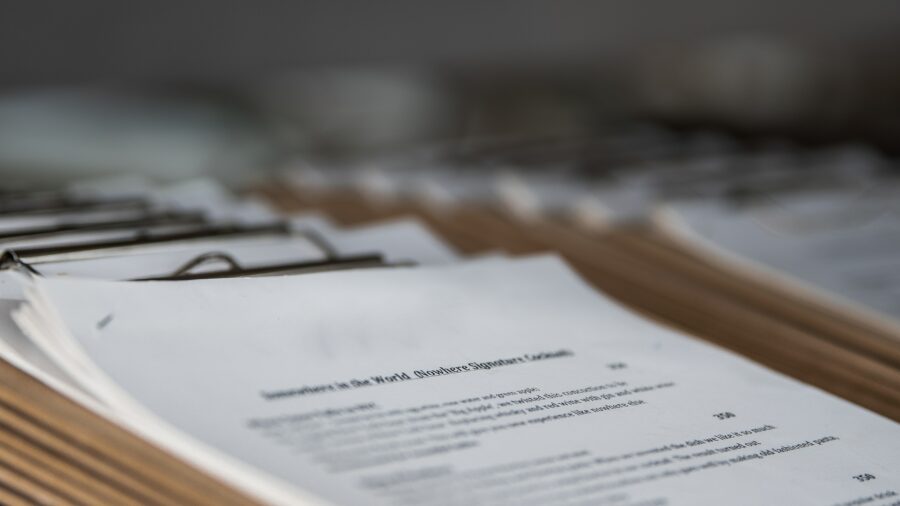
This memorandum (the “Memorandum”) summarizes and describes the possibility of benefiting from the tax regime applicable to employees relocating to Spain by virtue of an employment contract or the acquisition of a position as administrator provided for in Article 93 of the LIRPF (the “Regime” or commonly known as the “Beckham Law”), through which a number of important tax benefits can be enjoyed.
The Beckham Law is an attractive tax regime from which any person moving to Spain for an employment contract or for the acquisition of the status of director can benefit, provided that certain requirements are met.
This Report is for information purposes only, is not legally binding and cannot be considered as specific legal advice or a legal opinion. Furthermore, the Report is based on legislation and administrative and judicial interpretations existing at the date of the Report, all of which are subject to change.
Characteristics & requirements
1.TAX RESIDENCE
1.When is tax residence in Spain acquired?
Tax residence in Spain is obtained by fulfilling one of the following criteria1
Criterion of permanence: more than 183 days of stay in Spanish territory during a calendar year (it is not necessary that they are consecutive, they are computed independently for each calendar year). Sporadic absences of the taxpayer are considered as stay in Spain unless the taxpayer proves his tax residence in another country. In the case of territories or countries classified as tax havens, the tax authorities may require proof of residence for 183 days during the calendar year.
Center of economic interest criterion: the main nucleus or base of their activities or economic interests is located, directly or indirectly, in Spain.
Family criterion: There is a presumption of residence in Spain if the spouse not legally separated and the economically dependent minor children are tax residents in Spain. This presumption admits proof to the contrary.
1.2What are the tax consequences of acquiring tax residence in Spain?
The main consequence of acquiring tax residence in Spain is the taxation in Spain of worldwide income (i.e., income generated in Spain and abroad). These will be taxed by the Personal Income Tax (IRPF). General income is taxed at a rate of up to 45%, although this varies depending on each Autonomous Community.

2. PHYSICAL RESIDENCE OF THE BECKHAM REGIME
Any person who moves his effective residence to Spain and acquires Spanish tax residence may benefit from the special tax regime applicable to workers who move to Spanish territory, regulated in article 93 of the LIRPF, provided that certain requirements are met.
2.1What are the tax benefits of this regime?
The general consequence is that those persons who acquire their tax residence in Spain as a consequence of their relocation under the parameters described above may choose to be taxed, even if they are considered as tax residents in Spain, in accordance with the rules for nonresidents in Spain for a certain period of time.
The main consequences of being under the Beckham regime are the following:
- The tax will be levied exclusively on income generated in Spain and not on earned income obtained worldwide.
- General income is taxed at a tax rate of 24% up to the first 600,000 euros. 600,000.01 will be taxed at a flat rate of 47%.
Dividends, interest and capital gains (LIRNR art.25.1.f) are taxed at a scale of 19 to 28%.
2.2 What are the main characteristics of this regime?
What requirements must be met?
Not to have been a tax resident in Spain during the 5 previous tax years before moving to Spanish territory.
The move to Spain must take place as a result of:
- An employment contract, with the exception of the special employment relationship of professional sportsmen and women, or.
- The acquisition of a position as a director of an entity in whose capital the applicant does not have a direct or indirect shareholding equal to or greater than 25%.
In any case, there must be a causal relationship between the displacement to Spain and the beginning of the employment relationship or the position of director, so that the passage of a long period of time between both moments (displacement and beginning of the employment relationship) may be an indication, among other factors to be considered, that there is no such causal relationship.
Obtaining a residence permit as an entrepreneur or international teleworker, provided for in Law 14/2013.
Not obtaining income that would qualify as obtained through a permanent establishment located in Spanish territory.
What is a permanent establishment?
It is understood that a person operates through a permanent establishment in Spanish territory when, by any title, he has there, on a continuous or habitual basis, installations or workplaces of any kind, in which he carries out all or part of his activity, or acts therein through an agent authorized to contract, in the name and on behalf of the nonresident, who habitually exercises such powers.
In particular, the following are understood to constitute permanent establishments: head offices, branches, offices, factories, workshops, warehouses, deposits or other establishments, mines, oil or gas wells, quarries, agricultural, forestry or livestock farms or any other place of exploration or extraction of natural resources, and construction, installation or assembly works whose duration exceeds 6 months.
It is important to point out that any individual resident for tax purposes in Spain who is a self-employed professional (unless such status with the Spanish Social Security is due exclusively to a management position) or who carries on a self-employed activity in Spain or from Spain for which he/she will receive income from economic or professional activities, is considered to obtain income that could be considered as received by a permanent establishment per se and, therefore, the Regime cannot be applied.
In this respect, it should be borne in mind that Spanish tax legislation and the Directorate General of Taxes in its interpretation understands that the partners of companies that carry out professional activities for a company would obtain income from professional activities and, therefore, cannot apply the Regime.

Who cannot apply to this regime?
- Individuals who do not meet the above requirements:
- If he/she has been a tax resident in Spain in any of the last 5 years.
- That the transfer to Spain is not motivated by an employment contract or the acquisition of the condition of administrator.
- Professional athletes
- Self-employed workers (self-employed workers), unless they have a visa for teleworkers of international character or with an entrepreneur’s permit.
- Administrators of companies in which they have a shareholding or in which they are considered as related parties according to tax regulations (i.e., an indirect or direct shareholding of more than 25% of the company’s capital stock (art. 18 LIS)).
For how long can the Beckham regime be enjoyed?
During the tax period (which coincides with the calendar year) in which the acquisition of the tax residence takes place and the following 5 tax periods.
How is the regime applied?
By means of Form 149 within 6 months from the date on which the hiring company in Spain registers the interested party in the Social Security or from the date that appears in the document accrediting the maintenance in the Social Security of the country of origin, as the case may be.
Likewise, the application must be accompanied by the documentation that proves the fulfillment of the requirements.
It should be mentioned that, at present, it is not possible to apply for the option of this regime for workers who have an international teleworker visa since the specific communication model has not yet been approved.
How can one renounce the Beckham regime?
In the months of November and December prior to the end of the tax period in order for it to take effect for that tax period by means of form 149.
Likewise, you are excluded from the regime if you fail to comply with any of the requirements. Such non-compliance must be reported to the AEAT within 1 month.
The change of the employer by which initially came to Spain for another employer, or the signature of a new contract with the employer, does not determine the expulsion of the special regime being able to remain a short period of time in situation of unemployment or inactivity between the end of the labor relation or of administrator that motivated, in a real and effective way, the displacement and the beginning of the new labor relation or of administrator.
If he/she resigns or is excluded from the Regime, he/she will not be able to opt again for its application.
Tax return.
By means of Form 151 in the same filing period that is approved each year for Personal Income Tax returns.
What type of income can be received?
In addition to salary income, passive income (i.e. dividends, interest and capital gains) can be received in Spain, as well as remuneration for the exercise of the functions of the position of administrator. All types of income, except for self-employment.
Is the regime extended to other family members?
Yes, with the new modification it is possible to extend the regime to children under 25 years of age and their spouse, provided that the following requirements are met:
- That they move to Spanish territory with the taxpayer at the time the latter moves or during the first period of application of the regime.
- That they acquire their tax residence in Spain.
- That they had not been residents during the five tax periods prior to the relocation.
- That the sum of their taxable income in each of the tax periods of application of the regime is lower than the taxable income of the taxpayer that gives rise to the application of the special regime.
Conclusion
Any person who intends to relocate to Spain and has an offer of employment or a position as a director in an entity that meets the requirements set forth in this note, may benefit from the tax regime applicable to workers who relocate to Spanish territory on the occasion of an employment contract or the acquisition of a position as a director provided for in Article 93 of the LIRPF.
This regime represents a significant tax saving, but it also entails certain requirements that must be fulfilled. It is important to carry out a prior study of the applicant’s global circumstances and activities to verify that the requirements are met and if the regime is really viable and beneficial.